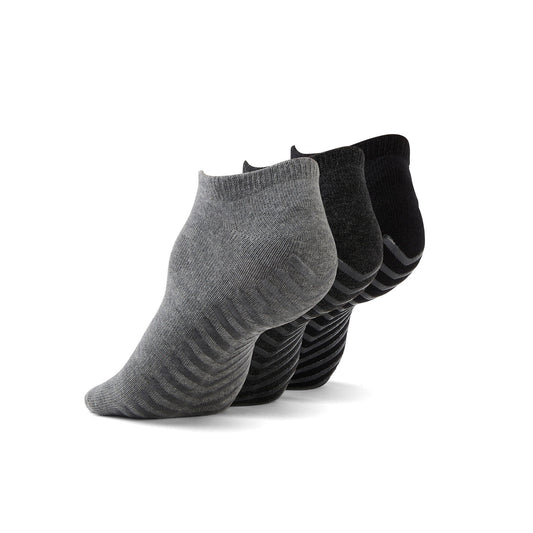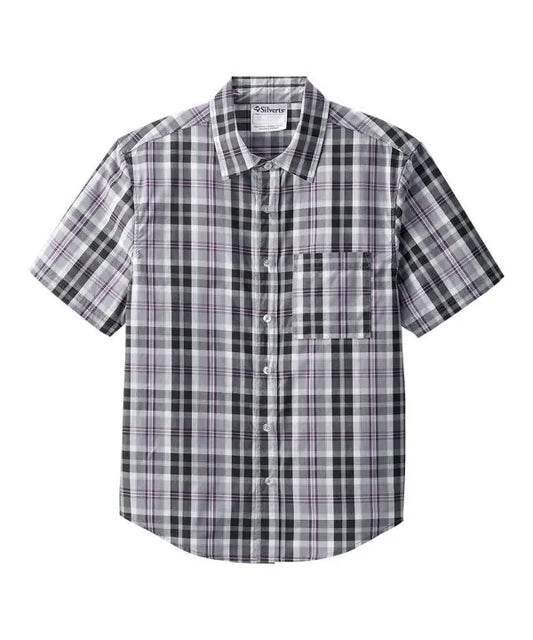Written by Liana Wang
After the Diagnosis.
Life can change in an instant. One moment, everything feels normal, and the next, you're facing a reality you never expected. Whether due to an accident, illness, or a progressive condition, adjusting to life with a disability is a journey filled with challenges, emotions, and ultimately, growth. It’s okay to grieve what was, but it’s also possible to build a fulfilling life, filled with joy, purpose, and strength.
How Can I Accept and Embrace My New Reality?
Acceptance doesn’t happen overnight. It’s a process, and it looks different for everyone. Some people find solace in therapy, others in spirituality, and some simply take it day by day. The key is allowing yourself to feel everything, the frustration, the sadness, and even the anger, without judgment. Over time, acceptance isn’t about giving up; it’s about learning to live fully within your new circumstances.
What Emotional Challenges Might I Face, and How Can I Manage Them?
The emotional toll of a disability can be just as difficult as the physical adjustments. Feelings of depression, anxiety, frustration, and loneliness are common. One of the best things you can do is acknowledge these feelings rather than suppress them.
Therapy, whether individual or group, can be a powerful tool. Connecting with others who understand your struggles can help you feel less alone. Finding creative outlets like writing, art, or even adaptive sports, can also provide an emotional release. It’s important to remember that asking for help isn’t a sign of weakness. Lean on friends, family, and professionals when you need to.
Where Can I Find Support Groups and Communities for People with Disabilities?
One of the hardest parts of adjusting is feeling like you’re the only one going through something. But the truth is, you’re not alone. There are countless online and in-person support groups where people share experiences, advice, and encouragement.
Organizations like the National Disability Rights Network (NDRN), The Council of Canadians with Disabilities (CCD), and local disability resource centers often have lists of support groups tailored to specific conditions. Facebook groups, Reddit communities, and other social media platforms also provide a place to connect with people who truly understand what you’re going through.
Mens Short Sleeve Shirt with Magnetic Closure
How Do I Navigate the Healthcare System and Advocate for My Needs?
The healthcare system can be overwhelming, especially when you’re dealing with a new diagnosis or condition. Doctors, specialists, and therapists can feel like an endless cycle of appointments, but the best thing you can do is become your own advocate.
Keep detailed records of your medical history, medications, and symptoms. Ask questions, seek second opinions, and don’t be afraid to push back if something doesn’t feel right. If you’re struggling, consider reaching out to a patient advocate or case manager. They can help you navigate insurance, appointments, and treatment options.
What Financial Assistance Programs Are Available for People with Disabilities?
Finances can be a huge stressor when adjusting to a disability. Medical expenses, assistive devices, and home modifications all add up quickly. Thankfully, there are programs that can help.
Social Security Disability Insurance (SSDI) and Supplemental Security Income (SSI) are two major programs in the U.S. that provide financial assistance. Medicaid, Medicare, and state-specific programs can help cover healthcare costs. Additionally, nonprofits and grants exist to assist with expenses related to accessibility and independence. Researching and applying for these resources can take time, but it’s well worth it in the long run.
How Can I Modify My Home and Workspace for Better Accessibility?
Adapting to your environment can make a world of difference. Simple changes like grab bars in the bathroom, widened doorways, and voice-activated technology, can improve mobility and independence.
If you work, talk to your employer about accommodations. Under the Americans with Disabilities Act (ADA) and Accessible Canada Act (ACA), employers are required to provide reasonable accommodations for employees with disabilities. This could mean an adjustable desk, remote work options, or specialized software to assist with your job.
What Are Some Ways to Maintain an Active and Fulfilling Lifestyle?
Just because life looks different doesn’t mean it has to be any less fulfilling. Adaptive sports, such as wheelchair basketball, para-swimming, and hand cycling, are fantastic ways to stay active. If sports aren’t your thing, hobbies like painting, playing an instrument, or even gardening can bring joy and purpose.
Travel is also still possible! Many destinations now offer accessible accommodations, and organizations exist to help people with disabilities explore the world safely. Don’t let fear keep you from pursuing new experiences.
How Can Adaptive Clothing Improve Daily Life?
Clothing can be a challenge when dealing with mobility limitations, dexterity issues, or sensory sensitivities. Adaptive clothing is designed to make getting dressed easier while maintaining style and comfort. Brands like June Adaptive offer great options, including magnetic closure shirts (Mens Shirt with Magnetic Closure), side-zip jeans (Side-zip Jeans), and slip-on shoes (Slip-on Shoes). These small changes in clothing design can make a huge difference in daily independence and confidence.
What Are Some Ways to Maintain an Active and Fulfilling Lifestyle?
Just because life looks different doesn’t mean it has to be any less fulfilling. Adaptive sports, such as wheelchair basketball, para-swimming, and hand cycling, are fantastic ways to stay active. If sports aren’t your thing, hobbies like painting, playing an instrument, or even gardening can bring joy and purpose.
Travel is also still possible! Many destinations now offer accessible accommodations, and organizations exist to help people with disabilities explore the world safely. Don’t let fear keep you from pursuing new experiences.
James’ Story: Finding Strength After a Life-Changing Accident
James had always been an active person. Hiking, cycling, and weekend camping trips were just a regular part of his life. But one accident changed everything. A fall while rock climbing left him with a spinal cord injury, altering his mobility permanently. At first, he struggled with deep frustration and grief. His independence felt like it had been ripped away. But slowly, he started to rebuild. He found a community of adaptive athletes who encouraged him to try new activities, including wheelchair rugby. He also worked with a therapist who helped him navigate the emotional weight of his new reality. Through it all, he discovered that life wasn’t over, it was just different. His story became an inspiration to others going through similar challenges, proving that strength isn’t about what you can do physically, but about how you choose to move forward.
Rediscovering Passions and Interests After Disability
A disability might change how you engage with the world, but it doesn’t have to take away the things you love. Many people find that rediscovering old hobbies or even picking up new ones can be a transformative part of their journey. Whether it's art, music, reading, gaming, or outdoor activities, there are often adaptive ways to continue pursuing passions. For example, James, after his spinal cord injury, found solace in adaptive sports and learned how to paint using specialized equipment. Technology has also made hobbies more accessible, from voice-controlled devices for writing to adaptive gaming controllers. Exploring interests not only provides joy and relaxation but also fosters a sense of purpose and self-identity beyond the disability. Embracing hobbies is a reminder that while life may have changed, the ability to find fulfillment remains.
Men's Wide Easy Slip On Sneakers Without Laces
How Do I Deal with Discrimination and Social Stigma?
Unfortunately, discrimination and stigma still exist. People may underestimate you, make assumptions, or even treat you differently. It’s frustrating, but there are ways to handle it. First, know your rights. Laws like the ADA (USA) and ACA (Canada) protect you from discrimination in workplaces, public spaces, and housing. If you face discrimination, document everything and report it when necessary. Second, education is key. Sometimes, ignorance is the root of stigma. By confidently advocating for yourself and educating those around you, you can help break down barriers.
What Legal Rights Do I Have Regarding Accessibility and Accommodations?
Knowing your legal rights is crucial. In the U.S. and Canada, the ADA and ACA ensures accessibility in public places, workplaces, and housing. If you’re in another country, research your local disability rights laws. If you ever feel your rights are being violated, reach out to disability advocacy organizations. They can provide guidance on filing complaints, taking legal action, and standing up for yourself.
How Can I Turn My Experience into Advocacy and Help Others in Similar Situations?
One of the most powerful things you can do is use your experience to help others. Advocacy comes in many forms, from speaking at events, and writing about your experiences, to joining disability rights organizations or even mentoring someone who is newly disabled. Sharing your story can inspire and educate others. Your voice matters whether you do it through social media, blogging, or public speaking.
Final Thoughts: You Are Not Alone
Adjusting to life with a disability is a journey, but it’s one you don’t have to walk alone. With time, support, and self-compassion, you can build a life that’s meaningful and fulfilling. Your story isn’t over, it’s just beginning in a new and powerful way. There will be days when it feels overwhelming, and that’s okay. Healing and adaptation aren’t linear processes, and setbacks are part of growth. Surround yourself with people who uplift and encourage you, seek out resources that empower you, and remember that every small step forward is a victory. You have the strength to redefine your path, and with determination, you can create a future filled with possibility and purpose.
Ready to experience the difference adaptive fashion can make? Explore JuneAdaptive.com's diverse collection of adaptive clothing designed for comfort, style, and independence. Sign up for our newsletter: Receive a free guide on Disability Grants and resources around the US and Canada to empower you or your loved one's journey.
Join our community!


















